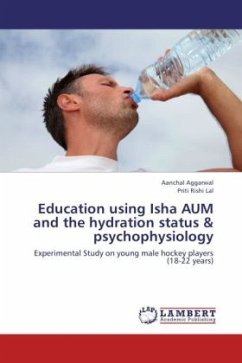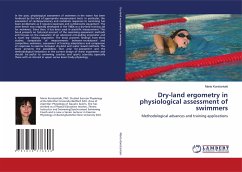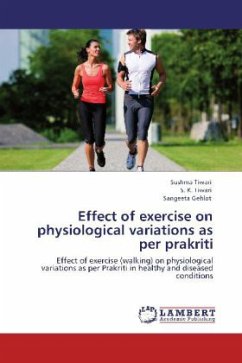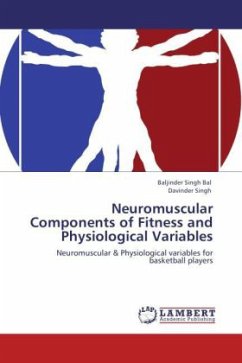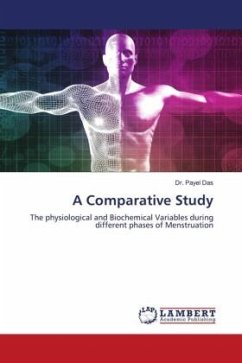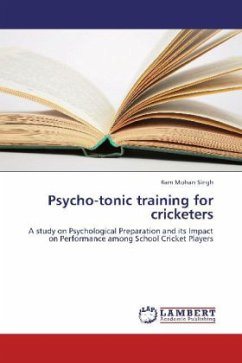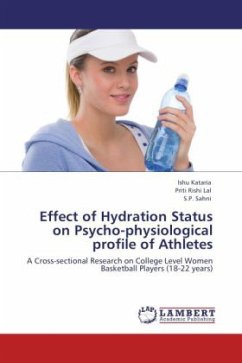
Effect of Hydration Status on Psycho-physiological profile of Athletes
A Cross-sectional Research on College Level Women Basketball Players (18-22 years)
Versandkostenfrei!
Versandfertig in 6-10 Tagen
45,99 €
inkl. MwSt.

PAYBACK Punkte
23 °P sammeln!
The present cross-sectional research was carried out with the women basketball players of University of Delhi, and a matched control group; after screening within pre-determined selection criteria. The investigation was undertaken with a rationale that there is paucity of data regarding the effect of impaired hydration status on the psycho-physiological parameters, fluid intake practices and factors influencing these practices amongst the athletes, primarily in India. The findings indicated significantly higher values of post-exercise urine specific gravity (p0.01), urine pH (p0.05) and heart ...
The present cross-sectional research was carried out with the women basketball players of University of Delhi, and a matched control group; after screening within pre-determined selection criteria. The investigation was undertaken with a rationale that there is paucity of data regarding the effect of impaired hydration status on the psycho-physiological parameters, fluid intake practices and factors influencing these practices amongst the athletes, primarily in India. The findings indicated significantly higher values of post-exercise urine specific gravity (p0.01), urine pH (p0.05) and heart rate (p0.05) in basketball group compared to control group. A positive covariance was also observed between urine specific gravity and heart rate, implying that significantly higher levels of dehydration in the basketball group may have caused deterioration in psycho-physiological response. The study highlighted that training in an uncontrolled environment may cause dehydration related psycho-physiological fatigue, which may be attenuated with improved fluid intake practices.



